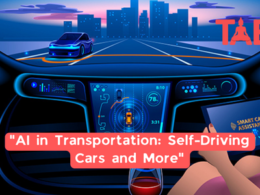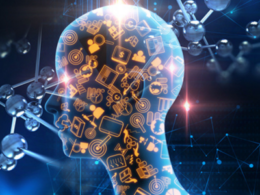In today’s fast-paced world, customer service has become crucial to any business. With the rise of technology, companies are increasingly turning to Artificial Intelligence (AI) to provide better customer service experiences. AI has revolutionized how businesses interact with customers, making it more efficient, effective, and personalized. In this article, we will analyze the power of AI in customer service, specifically focusing on chatbots and other AI-powered solutions.
Introduction to AI in Customer Service
AI in customer service refers to using AI-powered technologies such as chatbots, virtual assistants, and natural language processing (NLP) to provide better customer support. These solutions are designed to automate handling customer queries, resolving issues, and providing personalized experiences. By leveraging AI, businesses can improve their response times, reduce human error, and enhance customer satisfaction.
Benefits of AI in Customer Service
There are numerous benefits of AI in customer service, including:
1. Improved Response Times
AI-powered chatbots can respond instantly to customer queries, reducing wait times and improving response times. This is particularly beneficial for businesses with high volumes of customer queries.
2. Increased Efficiency

AI-powered solutions can handle repetitive tasks, freeing human agents to focus on more complicated issues. This can improve the efficiency of customer service teams, allowing them to handle a higher volume of queries.
3. Personalized Experiences
AI-powered solutions can analyze customer data to provide personalized experiences. By understanding customer preferences and behaviors, businesses can tailor their responses to individual needs, increasing customer satisfaction.
4. Cost-Effective
AI-powered solutions can significantly reduce the cost of customer service. Businesses can save money on labor costs by automating tasks and decreasing the need for human agents.
Chatbots in Customer Service
Chatbots are one of the most popular AI-powered solutions used in customer service. Chatbots are software programs designed to simulate human conversation. They can interact with customers via text or voice, answering queries and providing support.
1. Types of Chatbots
There are two types of chatbots:
Rule-Based Chatbots
Rule-based chatbots are programmed to observe a specific set of rules. They can only respond to pre-defined queries and cannot understand natural language.
AI-Powered Chatbots

AI-powered chatbots use NLP to understand natural language and provide more personalized responses. They can learn from previous interactions and improve their responses over time.
2. Benefits of Chatbots in Customer Service
Chatbots offer numerous benefits in customer service, including:
24/7 Availability
Chatbots can provide support 24/7, improving response times and customer satisfaction.
Scalability
Chatbots can simultaneously handle a high volume of queries, making them scalable solutions for businesses.
Cost-Effective
Chatbots are cost-effective solutions that can significantly reduce the cost of customer service.
Personalization
AI-powered chatbots can analyze customer data to provide personalized experiences.
Beyond Chatbots: Other AI-Powered Solutions in Customer Service
While chatbots are the most popular AI-powered solution in customer service, other solutions are worth exploring.
1. Virtual Assistants
Virtual assistants are AI-powered solutions that can handle complex tasks such as scheduling appointments and booking reservations. They can interact with customers via voice or text, providing personalized experiences.
2. Sentiment Analysis
Sentiment analysis is an AI-powered solution that analyzes customer feedback to understand their emotions and feelings. This can help businesses improve their products and services and enhance customer satisfaction.
3. Speech Recognition
Speech recognition is an AI-powered solution that allows businesses to transcribe and analyze customer calls. This can help identify common issues and improve the quality of customer service.
Implementing AI in Customer Service
Implementing AI in customer service requires careful planning and consideration. Here are some steps to follow:
1. Identify Business Goals
Before implementing AI, businesses should identify their goals and the areas of customer service they want to improve.
2. Choose the Right Solution
Businesses should select the right AI-powered solution based on their goals and needs. For example, chatbots may be suitable for handling simple queries, while virtual assistants may be better for complex tasks.
3. Train the AI Solution
Once a solution has been chosen, businesses should train it to ensure it provides accurate and personalized responses.
4. Monitor and Optimize
Businesses should monitor their AI-powered solutions and optimize them over time to improve their performance.
Conclusion
AI-powered solutions have transformed customer service, allowing businesses to provide more efficient, effective, and personalized experiences. Chatbots and other AI-powered solutions offer numerous benefits, including improved response times, efficiency, and cost-effectiveness. By implementing AI in customer service, businesses can improve customer satisfaction, reduce costs, and gain a competitive edge.
FAQs
1. What is AI in customer service?
AI in customer service refers to using AI-powered technologies such as chatbots, virtual assistants, and NLP to provide better customer support.
2. What are the benefits of AI in customer service?
AI-powered solutions can provide improved response times, increased efficiency, personalized experiences, and cost-effectiveness.
3. What are chatbots?
Chatbots are software programs designed to simulate human conversation. They can interact with customers via text or voice, answering queries and providing support.
4. What are some other AI-powered solutions in customer service?
Other AI-powered solutions in customer service include virtual assistants, sentiment analysis, predictive analytics, and speech recognition.
5. How can businesses implement AI in customer service?
Businesses can implement AI in customer service by identifying their goals, selecting the right solution, training the solution, and monitoring and optimizing it over time.









